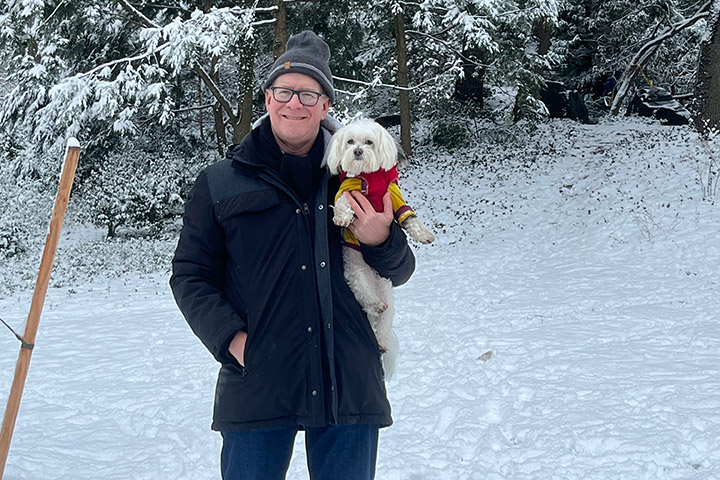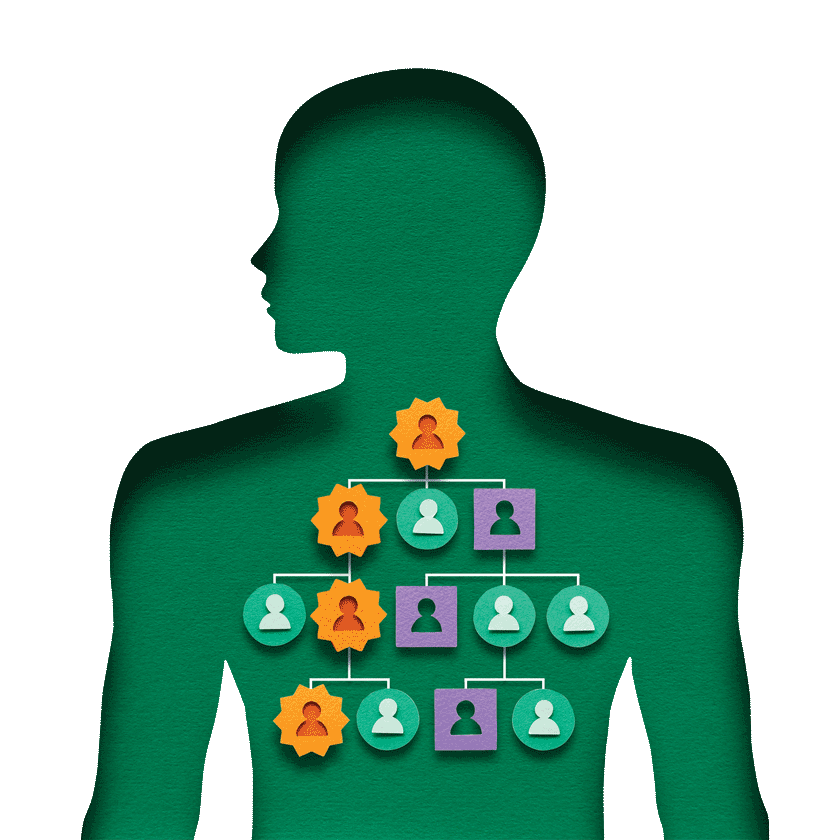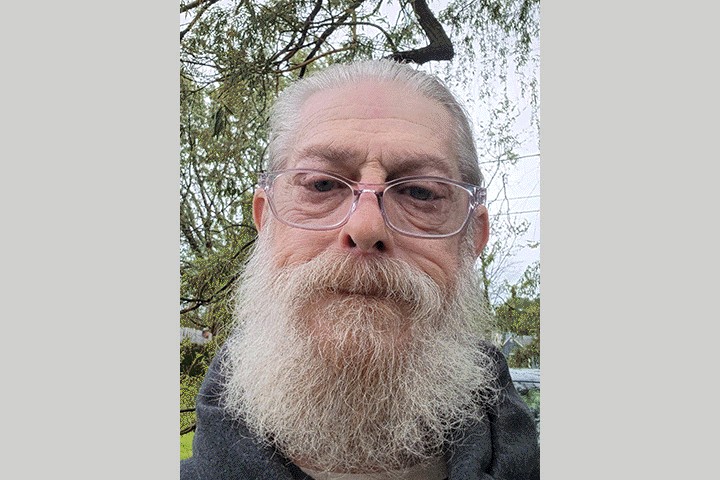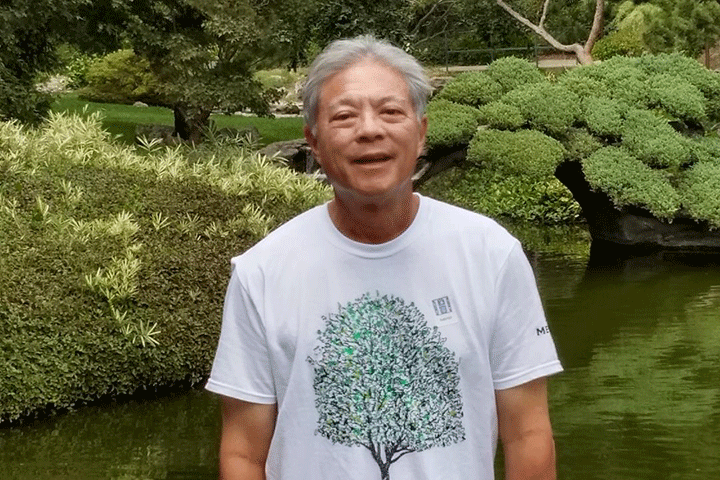Extensive Family History and Genetic Testing Leads to Early Detection

- Family history of cancer and pancreatic cancer
- BRCA1/2 mutation influences my treatment plan
- Surgery, chemotherapy, and a clinical trial
A proactive approach and early detection likely saved my life.
I began seeing Dr. Ravi Sharaf at Weill Cornell Medicine (New York City), who wanted me to get an MRI of my abdomen because of the BRCA2 mutation and my family history even though I was in good health. In September 2021, I had an MRI, which revealed something serious: a small tumor on the tail of my pancreas.
My father had five different cancers (he beat the first four and lived to 80 years old) and his father died of pancreatic cancer years before I was born. When genetic testing became available my father was tested and found to carry both the BRCA1 and 2 mutations. I followed his lead and got tested as well—sure enough I have both mutations as well.
Catching the Tumor Before it Spread
I met with Dr. Michael Lieberman and was immediately scheduled for a distal pancreatectomy. I was and am grateful that we discovered the stage Ia tumor early so that it could be removed before it spread. (As an aside, during the short time between my diagnosis and surgery, my dermatologist found a mole that turned out to be melanoma, another cancer that is prevalent from the BRCA2 mutation. Fortunately, the melanoma was also stage Ia and Dr. Lieberman removed it during the surgery for the tumor in my pancreas).
After recovering from surgery I was referred to Dr. Allyson Ocean, who recommended six months of chemotherapy. Because of my BRCA2 status, Dr. Ocean and I chose a specific protocol that would treat my cancer more effectively: a cisplatin and gemcitabine protocol that is said to be easier to tolerate than FOLFOX. As expected the side effects weren’t bad. Mostly I felt rundown by the end of each cycle. The steroids made it hard for me to sleep and I had mild neuropathy and a low white blood cell count. But all of it was tolerable.
A Clinical Trial to Boot
After completing chemotherapy, I participated in a one-year clinical trial with Dr. Kim A. Reiss at the Basser Center for BRCA at Penn Medicine’s Abramson Cancer Center (Philadelphia). I experienced some early side effects with that, too, including sunburn and neuropathy, that did not last long.
Greater Things to Come
I am now a three-plus year survivor of pancreatic cancer. I live in New York City with my wife and two daughters and lead an active life. I still practice law, and try to make time for giving back to the community that changed the course of my life for the better, including fundraising for Pancreatic Cancer Action Network (PanCAN). Dr. Ocean also connected me with Let’s Win Pancreatic Cancer and, in mid-2024 I was honored to be invited to join its Board of Directors, which allows me to advocate for other pancreatic cancer patients on a greater scale.
The biggest tip I can impart is to know your family history, get checked by doctors regularly, and consider genetic testing. It could save your life.






